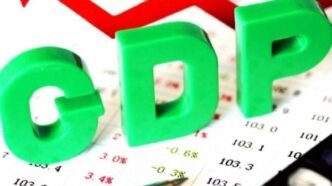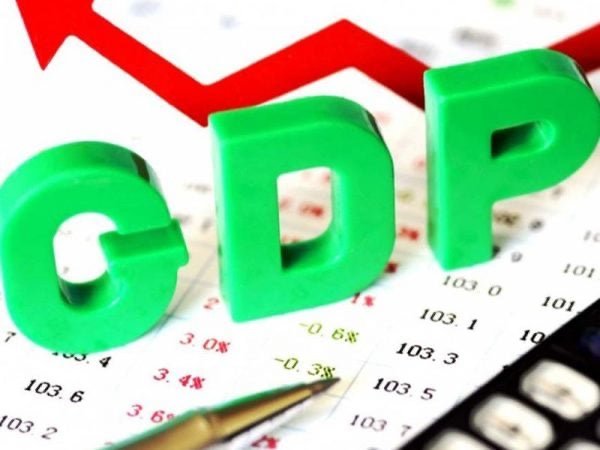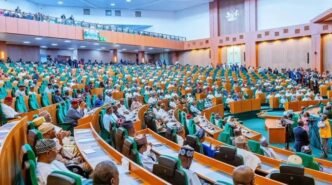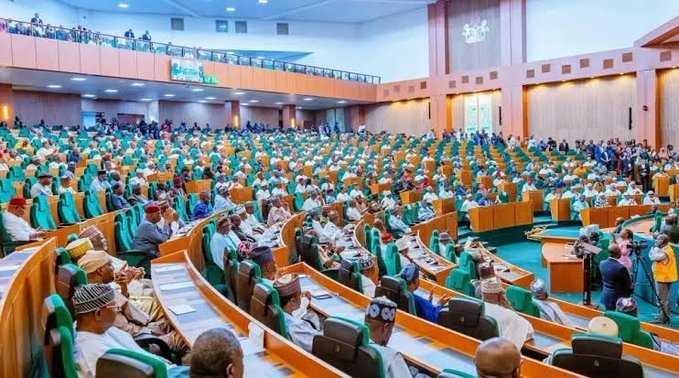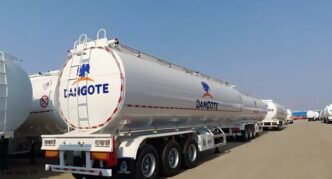Abuja, Nigeria – Nigeria’s economy recorded a significant upswing in the second quarter of 2025 as the Gross Domestic Product (GDP) expanded by 4.23 percent, according to the latest data released by the National Bureau of Statistics (NBS). The Q2 2025 GDP report signals a positive trajectory for Africa’s largest economy amid global uncertainties, domestic challenges, and ongoing reforms targeted at economic recovery and growth.
The report, which was released on Monday, underscores renewed resilience in key sectors of the Nigerian economy, notably agriculture, telecommunications, financial services, and manufacturing. It also reflects the impact of recent government interventions aimed at stabilizing the macroeconomic environment, improving crude oil output, and attracting foreign investments.
NBS Confirms Growth Trend
According to the NBS, Nigeria’s real GDP rose by 4.23 percent in Q2 2025, a considerable improvement compared to 3.16 percent growth recorded in Q1 2025 and 2.98 percent in the same period of 2024. The statistics agency highlighted that both the oil and non-oil sectors contributed to the growth, with the non-oil sector remaining the major driver of economic expansion.
“The performance of the economy in Q2 2025 reflects sustained recovery from previous quarters, underpinned by improvements in key non-oil activities and moderate rebound in crude oil production,” the NBS report stated.
The agency also noted that inflationary pressures, foreign exchange fluctuations, and global oil price volatility remain challenges, but structural reforms are beginning to yield measurable progress.
Oil Sector Records Mild Rebound
Nigeria’s oil sector, which has long been a central pillar of its economy, recorded a modest rebound in Q2 2025. The report revealed that average crude oil production increased to 1.62 million barrels per day (mbpd), up from 1.53 mbpd in Q1 2025. Although production levels are still below the country’s OPEC quota of 1.8 mbpd, the gains signal gradual stability in output.
The NBS noted that the oil sector grew by 1.34 percent in real terms year-on-year, reversing the contraction recorded in previous quarters. The increase was attributed to improved security in the Niger Delta, government’s ongoing crackdown on oil theft, and operational efficiency in newly revitalized oil fields.
Non-Oil Sector Remains Growth Engine
The non-oil sector accounted for over 92 percent of total GDP, solidifying its role as the backbone of Nigeria’s economic expansion.
- Agriculture grew by 5.21 percent, driven by higher crop production, government fertilizer subsidy programs, and favorable rainfall patterns across the northern and middle-belt regions.
- Telecommunications and ICT expanded by 7.85 percent, maintaining its status as one of the fastest-growing sectors due to increased mobile penetration, digital services adoption, and expansion of broadband infrastructure.
- Financial and insurance services recorded a remarkable growth rate of 6.41 percent, benefiting from fintech innovation, improved banking penetration, and higher capital inflows.
- Manufacturing grew by 4.02 percent, supported by local production of cement, food processing, and pharmaceuticals despite high energy costs and FX constraints.
The NBS emphasized that the sustained growth in non-oil activities demonstrates Nigeria’s gradual but steady economic diversification away from overdependence on crude oil revenues.
Government Reacts to GDP Growth
Reacting to the new GDP figures, the Minister of Finance and Coordinating Minister of the Economy, Wale Edun, described the growth as “a clear indication that Nigeria’s economic reforms are beginning to deliver results.”
He highlighted policy measures such as fuel subsidy removal, foreign exchange unification, fiscal consolidation, and targeted social intervention programs as key enablers of growth.
“This positive outcome shows that Nigeria is on the path of sustainable growth. We are prioritizing macroeconomic stability, expanding infrastructure investment, and creating opportunities for businesses to thrive,” Edun said.
Similarly, the Governor of the Central Bank of Nigeria (CBN), Olayemi Cardoso, noted that monetary tightening and exchange rate reforms have contributed to improved investor confidence and capital inflows. He, however, cautioned that inflation, currently above 22 percent, still poses risks to economic stability.
Analysts Weigh In
Economic analysts have welcomed the Q2 2025 GDP figures but warn that Nigeria must address structural bottlenecks to sustain growth momentum.
Dr. Muda Yusuf, CEO of the Centre for the Promotion of Private Enterprise, said:
“The growth of 4.23 percent is impressive, but Nigeria still faces major challenges in power supply, infrastructure deficits, and insecurity in farming communities. These remain barriers to achieving inclusive growth.”
Similarly, analysts at Coronation Merchant Bank noted that while GDP growth is encouraging, high inflation and unemployment continue to erode household purchasing power. They advised the government to focus on stabilizing prices and boosting job creation.
Implications for Businesses and Households
The GDP growth rate of 4.23 percent carries implications for businesses, investors, and Nigerian households.
For businesses, especially those in ICT, agriculture, and manufacturing, the report validates opportunities for expansion. Increased broadband penetration and digital adoption are expected to fuel further growth in e-commerce, financial technology, and digital payments.
For households, however, the picture is mixed. While economic growth suggests better prospects in the long term, high living costs, inflationary pressures, and persistent unemployment continue to weigh heavily on average Nigerians. The World Bank recently reported that over 40 percent of Nigerians still live below the poverty line, underscoring the need for inclusive policies.
Regional and Global Context
Nigeria’s Q2 2025 GDP growth aligns with broader growth trends in Sub-Saharan Africa. According to the International Monetary Fund (IMF), the region is projected to grow by 3.8 percent in 2025, driven by resource exports, technology adoption, and infrastructure expansion. Nigeria’s 4.23 percent growth therefore positions it above the regional average, reinforcing its status as a major economic hub.
Globally, the growth also comes amid uncertainty in oil markets, geopolitical tensions, and sluggish recovery in advanced economies. Nigeria’s ability to post higher-than-expected growth under these conditions is seen as a testament to its resilience and reform-driven strategy.
Outlook for the Rest of 2025
Looking ahead, the NBS report projects cautious optimism for the Nigerian economy in the second half of 2025. Key factors that will determine growth include:
- Stability in global oil prices and local production levels.
- Effective implementation of fiscal and monetary reforms.
- Improved security, particularly in farming and oil-producing regions.
- Sustained investment in infrastructure, energy, and digital technology.
If these conditions are met, Nigeria’s economy could achieve an annual growth rate above 4 percent for 2025, marking one of its strongest performances in recent years.
Conclusion
The release of the Q2 2025 GDP report by the National Bureau of Statistics marks a turning point in Nigeria’s economic outlook. With a 4.23 percent growth rate, the country has not only surpassed its performance from the previous year but also shown resilience in the face of domestic and global headwinds.
While challenges remain in inflation, unemployment, and structural reforms, the latest figures provide hope that Africa’s largest economy is on a sustainable growth path. For businesses, investors, and policymakers, the report is both a validation of recent efforts and a call to double down on measures that will ensure inclusive and long-term prosperity.

